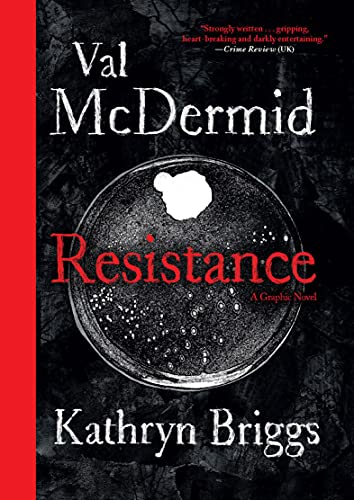 I worked for more than 30 years in a state government agency that included the public health department before retiring in, coincidentally, 2021. And for nearly all of that time I heard public health doctors and communicators warning about a coming pandemic. They were unsure whether it would be caused by a mutating respiratory virus (like the 1918 influenza pandemic) or by mutating bacteria due to the overuse and misuse of antibiotics in human and veterinary medicine. But they were sure it was just a matter of time for one or the other. Or both.
I worked for more than 30 years in a state government agency that included the public health department before retiring in, coincidentally, 2021. And for nearly all of that time I heard public health doctors and communicators warning about a coming pandemic. They were unsure whether it would be caused by a mutating respiratory virus (like the 1918 influenza pandemic) or by mutating bacteria due to the overuse and misuse of antibiotics in human and veterinary medicine. But they were sure it was just a matter of time for one or the other. Or both.
From 2023 we can look back and say they were right, and we know that this time it was caused by a respiratory virus. But well before COVID-19 was loosed on the world in late 2019 Scottish crime novelist Val McDermid and Pennsylvania based (and Scotland-educated) graphic novelist Kathryn Briggs began their collaboration on Resistance. It’s a cautionary tale of human hubris and carelessness leading to a bacterial pandemic that eventually wipes out a hefty percentage of the world’s population.
It’s mostly the tale of Zoe Beck, a former investigative journalist, now scrapping freelancer, who is at the epicenter of the nascent pandemic. She’s covering Solstice, a new outdoor music festival in Northumberland. Her friends Sam and Lisa are hoping to make a killing at the festival with their food cart, “Sam the Sausage Sandwich Man.” And they do, in more ways than one. Even though Sam’s always been careful about using “ethically sourced” meat, a new vendor sells him some dodgy pork, which is harboring some new antibiotic resistant bugs. Not only does this “swine erysipelas” cause violent digestive distress, it also manifests as skin welts, and in many victims leads to septic shock and death.
Zoe seems to be safe because she’s a strict vegetarian and won’t touch Sam’s sausages. The bulk of Resistance is the tale of her quest to uncover the facts and to get somebody to care before it’s too late. Complacent politicians, overworked and under-resourced public health officials, condescending physicians, and editors focused on the bottom line – all give Zoe the bum’s rush or worse.
It’s remarkable how prescient (in some ways) McDermid and Briggs were. Many of the scenes that play out in Resistance we’ve all witnessed IRL over the past four years. Fortunately, the worst case scenario they envision did not come to pass, as most governments and health agencies did act quickly enough during Covid to eventually turn things around. What they got wrong was fairly big, though: they envisioned the pubic clamoring for action as governments dithered, when in reality the recommendations of health agencies were often stymied by public resistance, fostered by polarized political systems.
In terms of story, Resistance is told almost entirely in dialog, and I have to say for me it often wasn’t great. This may not be the case for a British English reader, but to me as an American English user, the dialog frequently lacked a natural flow, rhythm, and feel. That was epitomized for me by the failure of the authors to call Zoe’s friends’ food cart the much snappier “Sausage Sammies,” rather than the cumbersome “Sam the Sausage Sandwich Man.”
Briggs’s art is well designed and executed. The entire book is in black and white, largely pen and ink drawings on a bed of gray watercolor washes and graphic collages. Sometimes it’s a bit too cluttered to allow unfettered reading, and sometimes the direction of a spread’s flow was unclear, but for the most part the style reflects the confusing, chaotic, and claustrophobic nature of the story and how it feels to the characters.
In spite of millions of deaths worldwide from COVID-19, a relatively realistic story like Resistance shows us how we dodged a much worse bullet. And serves as a caution about a real danger still lurking of antibiotic misuse, overuse and resistance. Recommended.
(Black Cat / Grove Atlantic, 2021)
